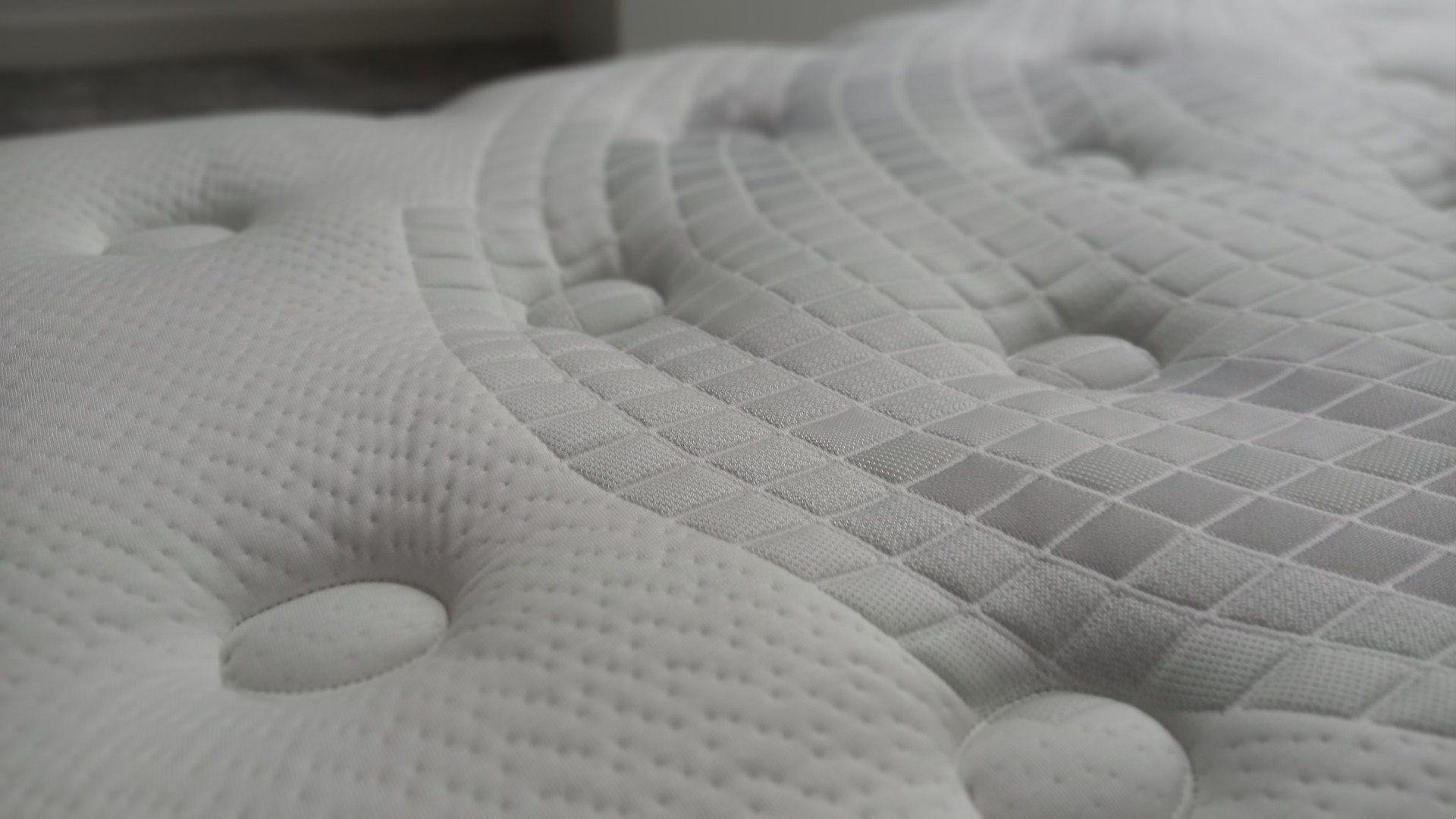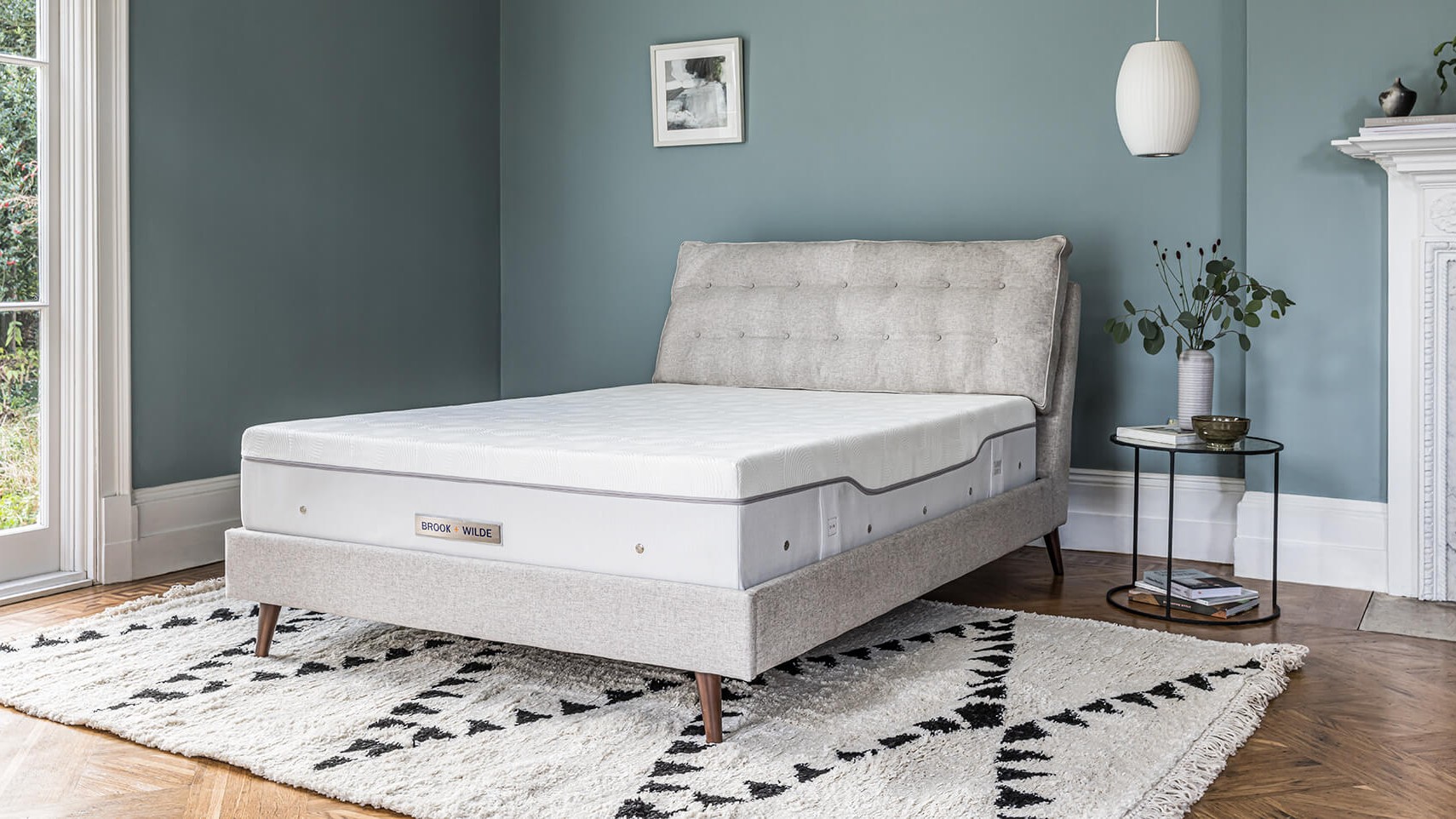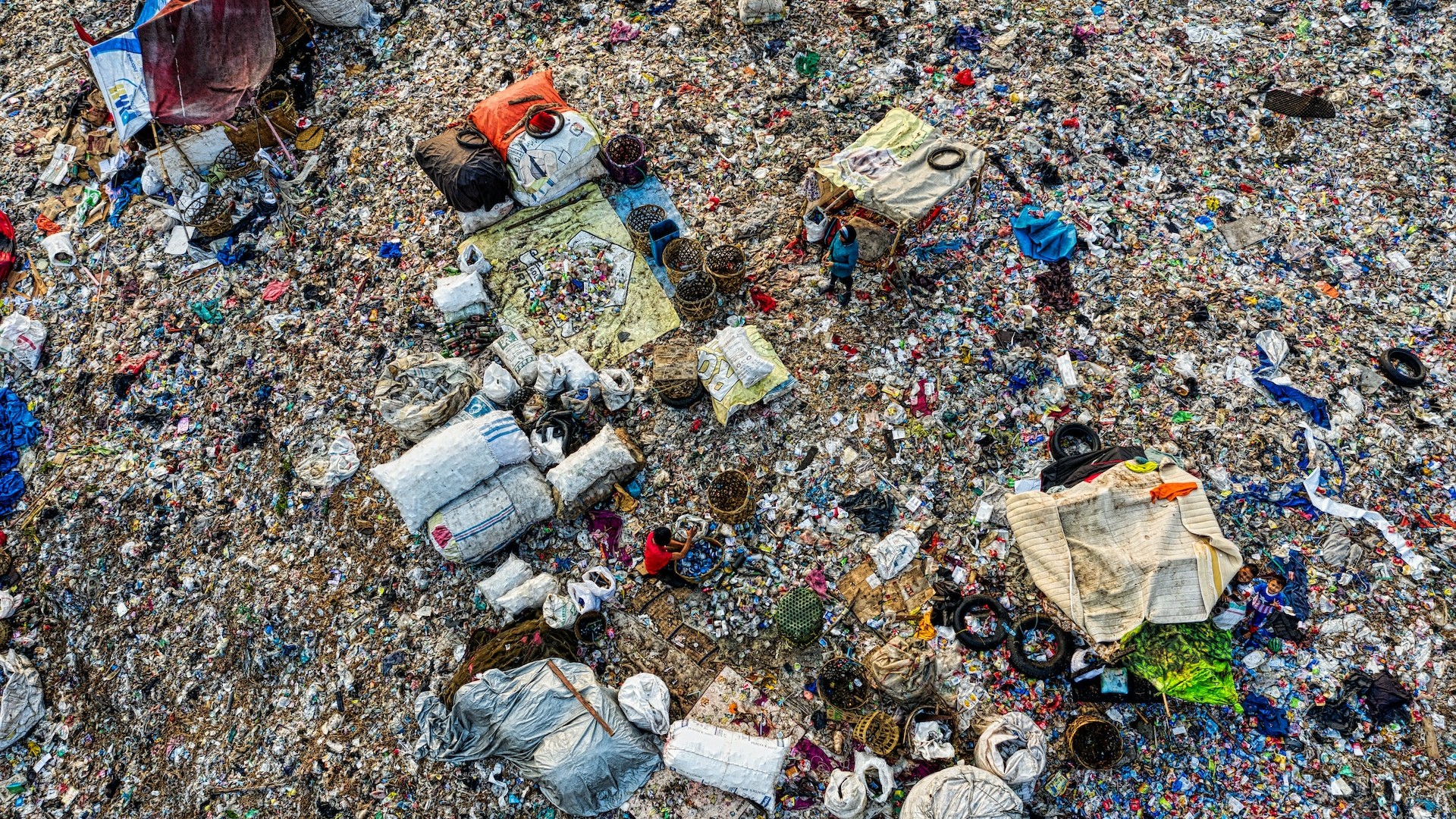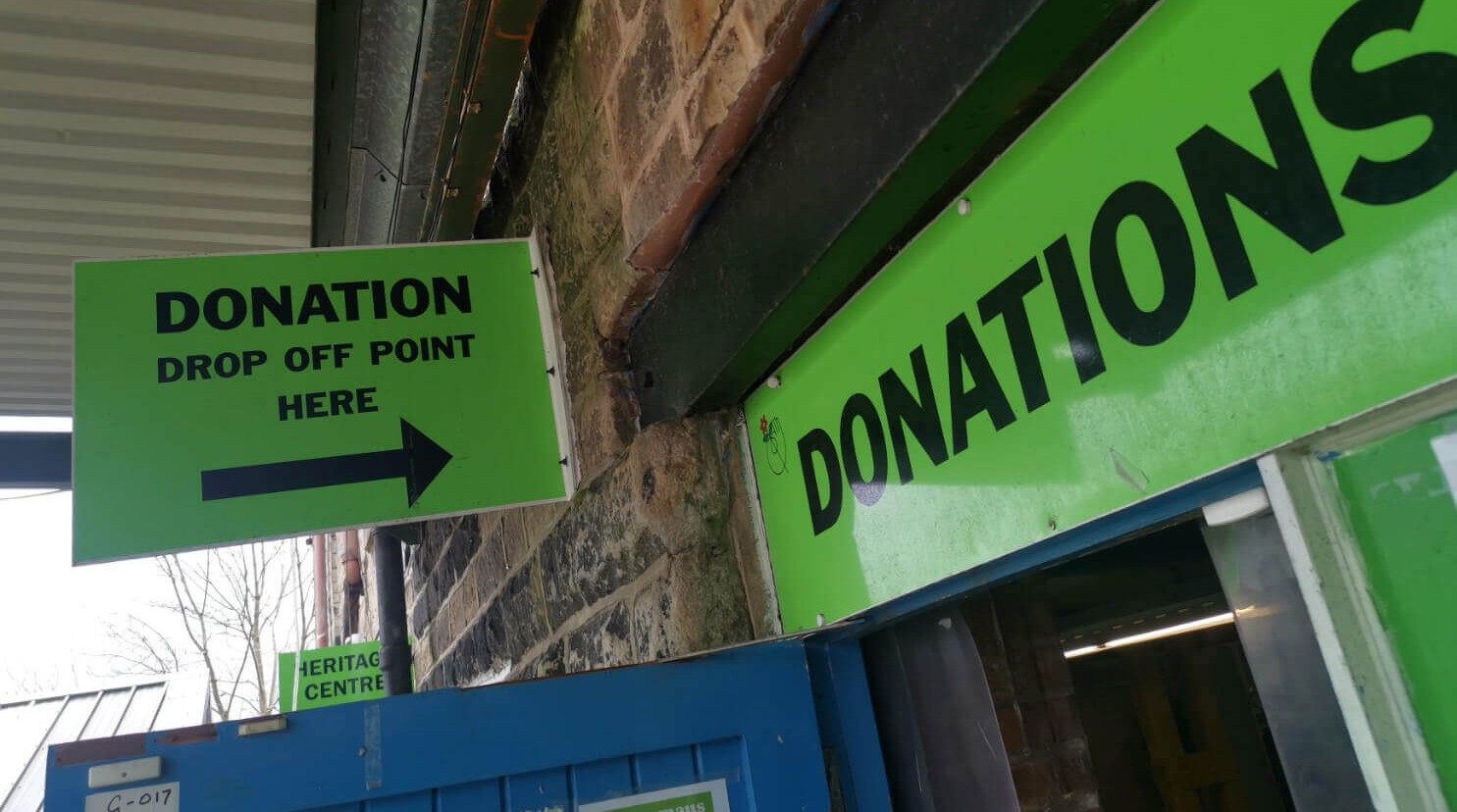How to recycle a mattress: put your old bed to best use

Sign up for breaking news, reviews, opinion, top tech deals, and more.
You are now subscribed
Your newsletter sign-up was successful
So you've decided to retire your tired, worn-out old mattress and replace it with a more comfortable and supportive new one. Hooray! There's just one niggle: what do you do with the old one?
The fact that you've landed on this article suggests you don't want to just throw it away and add to the already overflowing landfills. Good for you! According to the Product Stewardship Institute, Americans send more than 50,000 mattresses to the landfill each day and less than 5% are recycled. In the UK, according to The National Bed Federation, the figure is around 24%. By deciding not to add to this mountain of waste, you'll have a clear conscience that will help you sleep all the better at night.
The good news is that the answer to the question 'Can you recycle mattresses?' is an unqualified yes. To be clear, most materials used in most mattresses can be recycled. For example, foam can be shredded and repurposed for carpet padding or insulation. Metal springs can be melted down and used to make new metal products. Wood can be chipped and used as mulch or fuel for biomass energy. And fabric can be recycled into new textiles.
So read on as we explain 6 different ways to recycle a mattress in 2023. Meanwhile, if you haven't yet finalized your new bedroom setup, see our roundups of the best mattresses and best pillows on the market today. And if you're not sure whether your old mattress needs replacing in the first place, read our article on how often you should change your mattress.
1. Ask the mattress company to collect it

We'll start with the simplest option: ask the people you're purchasing a new mattress from to collect the old one for recycling. If you're buying online, you normally just need to check the relevant box at checkout. If the company you're using doesn't offer this service, then we'd suggest you loudly ask: why not?
Some do this for free. For example, in the USA, Saatva offers free mattress, futon and box spring removal when you purchase a new mattress from them. With others, you'll have to pay a small mattress recycle fee. For example in the UK, Dreams will collect and recycle a mattress for £40-£55, depending on size.
2. Ask a specialist company to collect it
Maybe your mattress retailer doesn't offer collection of the old mattress, or you just want a cheaper price for this service. Or perhaps you've already bought your new mattress, and still have your old mattress taking up space in the basement or shed.
Sign up for breaking news, reviews, opinion, top tech deals, and more.
In such cases, you may prefer to pay a third-party company to collect it. Obviously, you'll want to be sure the company is responsible and will actually recycle it, rather than just throw it away.
Good options in the US include LoadUp and Junk King; for further ideas, check out the comprehensive list of mattress recyclers at Bye Bye Mattress. Good options in the UK, meanwhile, include Collect Your Old Bed, Zero Waste Group and The Mattress Recycle People.
3. Local authority recycling

Many local government bodies, on both sides of the Atlantic, will take responsibility for collecting large items like mattresses and recycling them. But you'll usually have to pay for it. (Liverpool City Council is one notable exception.)
If you live in Britain, you can find out if a mattress recycling service is available in your area via the Gov.uk website or Zero Waste Scotland. In the USA, though, things are a bit more fragmented. So you'll need to look online to find out which municipal department is in charge of recycling, and call or visit their website for information.
Be warned, though: municipal collections can be surprisingly expensive. So if you have a large enough vehicle, or can borrow one, it will usually be a lot cheaper to take it directly to your local recycling center. That said, not all recycling centers will accept mattresses, and those that do will often charge a mattress recycle fee. So do check first!
4. Take it apart yourself
Transporting a mattress is often a headache due to its large size and weight. So one elegant solution is to take it apart yourself, and separate out all the recyclable materials from each other.
Yes, it's a bit of work, and if the mattress is well made it could prove quite a challenge. But it can be a fun way to spend a Saturday, and if you succeed, it will make it much easier to transport the mattress materials to a recycling center. In fact, you may be able to put some of them in your normal recycling collection.
Alternatively, if you're a crafter, you may be able to upcycle some of the materials in your own projects. And if your mattress has springs, you could even get some money from a scrap metal dealer.
5. Donate it to charity

The best way to recycle a mattress if it's past its best, but still in good condition – ie, no sags, smells, stains, rips or tears – is to donate it to charity. Before doing so, though, take some pictures and send them to the charity to check whether it's suitable. Also check that its safety label is intact, or they legally won't be able to take it.
In the USA, you can find a local charity that accepts mattresses by looking at The Furniture Bank Network, Habitat for Humanity or Donation Town. In the UK, British Heart Foundation and Emmaus will take mattresses in good condition, although the British Red Cross will not.
6. Give it away
Perhaps the simplest way to recycle a mattress in 2023 is to give it away for free, via a donation website such as Freecycle, Craigslist, or a local Facebook group. That way, you can help out someone in need, and make sure your mattress avoids going to landfill. If you can deliver it yourself, you're certain to find a taker quickly. If not, then just list it as 'collection only' and hope for the best. If no one responds, at least you haven't lost anything!
Can you recycle mattresses?
Yes, mattresses can be recycled, although the process can be more complicated than with products made of one dominant material, such as paper, glass or plastic. Typically, the process begins by removing the top cover and separating out the various components such as the springs, foam, and fabric. Each of these components are then recycled or repurposed separately.
Can all types of mattress be recycled?
Most types of mattresses can be recycled, including memory foam, latex, and innerspring mattresses. At the very least, some parts of the mattress will be recyclable, and sometimes all of it will be. However, some niche types of mattress, such as waterbeds and air mattresses, are not easily recyclable.
How much does it cost to recycle a mattress?
Mattress recycle fees can vary wildly depending on your location, the recycling center you use, whether it's run by a municipality or a private company, and whether you need the mattress to be picked up. So it's worth checking all the options we've listed above to see which ones will fit your budget best.
How do I prepare my mattress for recycling?
Always check with the service provider what they require before they recycle a mattress. Typically, you may need to remove any bed linen, and sometimes the mattress cover. If you can roll up or fold the mattress, that will help with transportation and storage. You might also be asked to bag or wrap the mattress to prevent it from getting dirty or wet during transportation.

Tom May is a freelance writer and editor specialising in tech, design and sleep products. Over the years he's tested a number of mattresses, duvets and pillows, and as a back pain sufferer, has a keen interest in finding ones that offer maximum support. Plus, in running a successful Airbnb business, sleep hygiene and providing the right bedding for guests has become a big part of his day-to-day life. He is author of Great TED Talks: Creativity, published by Pavilion Books.